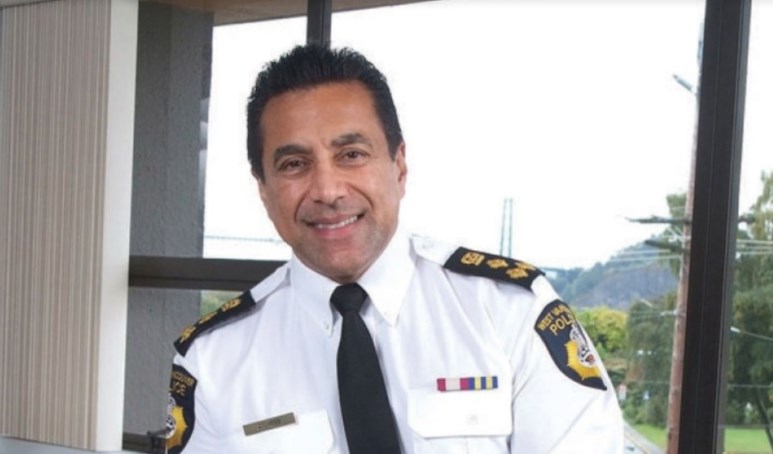The B.C. government said it will “review” a Justice Institute of B.C. training program tailor-made for Chinese police academies, following a .
“JIBC will now undertake a review of the program, in coordination with the Ministry of Advanced Education and Skills Training and the Ministry of Public Safety and Solicitor General. We will have no further comment pending the outcome of the review,” stated the Ministry of Public Safety and Solicitor General Tuesday.
Minister of Public Safety and Solicitor General Mike Farnworth and Minister of Advanced Education Anne Kang have both declined to comment on the program.
The review is not a clear rebuke of the program, unlike when the Canadian government issued statements to the public last December that a similar military training program with the People’s Liberation Army on Canadian soil had been cancelled.
Former B.C. Solicitor General and retired municipal police chief Kash Heed says there is no need for a review; the program should be cancelled in its entirety, he said.
“I am absolutely astonished by what is going on. I had no idea …and I cannot believe all three levels of government are allowing this to happen and the JIBC board is allowing this to happen,” Heed told Glacier Media.
Heed joins a chorus of other criminal justice and national security experts who think the program ought to be terminated.
“This is a country – which the Chinese Communist Party has control of – this is the country that is detaining [Michael Kovrig and Michael Spavor] and we are training their police officers on Canadian soil? This makes absolutely no sense whatsoever. And for this not to be a significant issue in Canada, troubles me,” said Heed.
Glacier Media has reached out to Canada’s minister of Public Safety Bill Blair for his thoughts on the B.C. government partnering with the Public Security Bureau of the PRC. Blair has yet to respond.
Heed said policing is a sensitive issue on many levels. International agreements by provincial police academies, such as JIBC, may be fine, he said, but only with countries that do not “abuse human rights and oppress their population.”
Glacier Media reported how JIBC has accepted close to 2,000 Chinese law enforcement students, recruits and officials, plus dozens of Chinese state judges, to its purported education and training programs, since 2013. Its international law enforcement studies (ILES) program has operated with limited guiding principles and oversight for human rights and national security considerations, despite being tailor-made for Chinese police academies.
Farnworth’s ministry said the last Chinese police recruits came to JIBC in fall 2019. However, the COVID-19 pandemic followed and no Chinese police academies have sent students and officials since then.
The program, critics charge, is at best a questionable source of revenue that does nothing to achieve its stated goal of reforming the authoritarian police regime or, at worst, a Trojan horse chock-full of national security threats, such as foreign influence activity, espionage and further offshore human rights violations.
As well, members of pro-democracy groups from Canada’s Hong Kong community are concerned about CCP infiltration in local police departments over the long term.
“I think they’ve already infiltrated some of our sensitive positions here in Canada,” said Heed.
“I think we are very naïve if we think they don’t have operatives in our country right now, given the fact that there are so many issues with the Chinese Communist Party; given the fact we’ve got technology issues and we’re detaining an individual (Huawei CFO Meng Wanzhou) on behalf of the United States and in turn they have detained two of our citizens with no respect for their human rights.”
The PLA training program with Canadian forces raised widespread concerns about the Canadian government’s relations with the CCP.
In B.C., the provincial government has a rare MOU among Western jurisdictions for a multi-faceted partnership on China’s Belt and Road Initiative. Former premier Christy Clark and B.C. international trade minister Teresa Wat signed the MOU in 2016 and it remains in place under the BC NDP.
The JIBC board indicated it would be assessing international contracts for human rights concerns in fall 2020.

